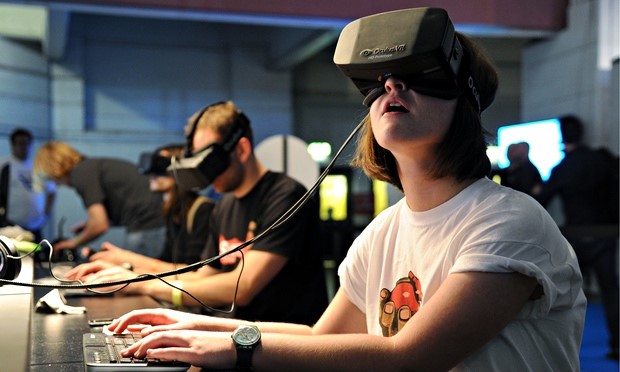
After years of speculation and hype, the Oculus Rift VR headset will finally go on sale early next year. Oculus VR’s CEO Brendan Iribe revealed on Wednesday May 27 at the Code Conference in Rancho Palos Verdes, Calif. that consumers can expect to spend around $1,500 for both the rift and a contemporary computer capable of running it.
Iribe notes that the steep estimate is mostly derived from the cost of building a new rig, which typically runs at the $1000 mark when factoring in the $300 to $500 cost if a high-end video card and the $300 needed for a top-performing CPU. Given the developer version of the Rift runs for $350, it can be implied that a consumer unit will run for approximately $350 to $500; an exact pricing has yet to be determined.
“Over time, we'd like it to get to $1,000 or less, as we get to the next generation of VR,” explained Iribe referring to the cost of both a new computer and a Rift headset.
For a device whose primary application remains centered on PC video games, a market smaller than its console cousins, a $500 price mark is quite a risk inducing factor, especially because there hasn’t been a whole lot done to explore 3D movies, theater, sports, concerts or the other applications outside of gaming. In addition, virtual-reality headsets are infamous for inducing nausea, an issue that Oculus VR is still currently working on.
According to the Rift’s website , the development kit’s recommended hardware requirements are vaguely listed as: “A desktop computer running a dedicated graphics card with DVI-D or HDMI graphics output, with capability of running current generation 3D games at 1080p resolution at 75fps or higher.”
Seeking to expand beyond into the augmented reality market, Oculus recently acquired the computer vision company Surreal Vision, a startup that specializes in recreating real-world environments in 3D. When Facebook initially acquired Oculus VR in March 2014, the social media giant envisioned VR as a universal platform that would encompass virtual tourism, medicine, machine vision, and or more. Surreal Vision may be the start of something greater than purely gaming.
Source: CNET
Advertisement
Learn more about Electronic Products Magazine





